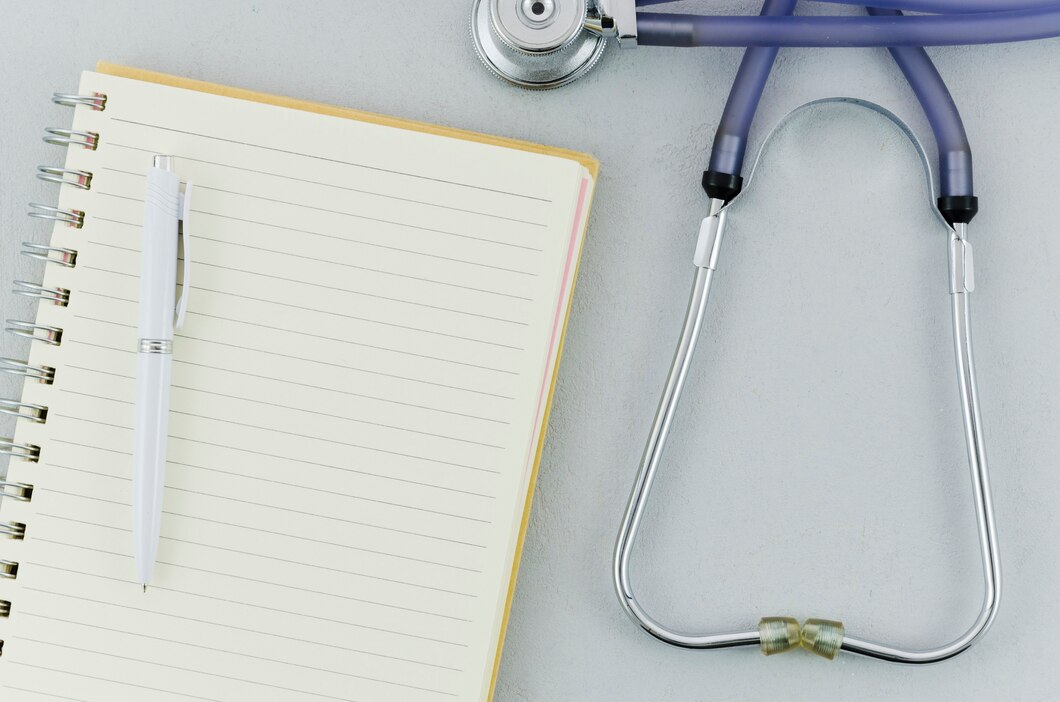The urinary system plays a vital role in maintaining the body’s balance by filtering waste and excess fluids, ensuring overall health. Comprising the kidneys, bladder, ureters, and urethra, this system is essential for eliminating toxins and regulating hydration. However, it’s also highly susceptible to issues like urinary system infections, which are among the most common health problems affecting people of all ages.
From urinary tract infections (UTIs) to more serious conditions like kidney stones and overactive bladder, these issues can disrupt daily life and lead to complications if untreated. Recognizing symptoms, understanding causes, and adopting effective management strategies are key to protecting your urinary health.
In this blog, we’ll explore the most common infections and conditions affecting the urinary system, offer practical tips for managing them, and provide valuable insights on prevention. Let’s dive in to ensure your urinary system stays in peak condition.
Understanding the Urinary System
The urinary system is a complex network of organs working together to eliminate waste and maintain the body’s fluid balance. It consists of four main components:
- Kidneys: These bean-shaped organs filter blood to remove waste and excess water, producing urine.
- Ureters: Tubes that transport urine from the kidneys to the bladder.
- Bladder: A hollow organ that stores urine until it’s ready to be expelled.
- Urethra: The tube through which urine exits the body during urination.
This system not only regulates hydration and electrolyte balance but also plays a crucial role in maintaining blood pressure and red blood cell production.
The Importance of Maintaining Urinary Health
Proper urinary health is essential for overall well-being. When the urinary system isn’t functioning correctly, waste can accumulate, leading to infections or other complications. Urinary system infections, such as urinary tract infections (UTIs), are particularly common and can cause discomfort, pain, and potential kidney damage if untreated. Simple practices like staying hydrated, maintaining hygiene, and seeking medical attention when symptoms arise are crucial for keeping the urinary system healthy.
Interaction with Other Body Systems
The urinary system is closely connected to other bodily systems. For instance, the cardiovascular system relies on the kidneys to regulate blood pressure, while the endocrine system depends on kidney-produced hormones for red blood cell production. Disruptions in urinary health can, therefore, have ripple effects on overall bodily functions.
For those managing infections or conditions affecting the urinary system, time off work may be necessary. Obtaining an online sick note for work can provide the documentation needed to focus on recovery while ensuring workplace responsibilities are managed. Taking proactive steps to protect urinary health benefits the entire body and enhances overall quality of life.
Common Infections of the Urinary System

Urinary system infections are among the most common health issues affecting individuals of all ages. They can range from mild discomfort to severe complications if left untreated. Below, we delve into the most prevalent infections: urinary tract infections (UTIs), kidney infections, and bladder infections, exploring their causes, symptoms, and treatment options.
Urinary Tract Infections (UTIs)
What Are UTIs?
A urinary tract infection occurs when bacteria enter the urinary system, usually through the urethra, and multiply. UTIs can affect any part of the urinary tract, including the bladder, urethra, or kidneys. They are the most frequent type of urinary system infections, particularly among women due to anatomical differences.
Symptoms
UTI symptoms vary but often include:
- A persistent urge to urinate, even when the bladder is nearly empty.
- A burning sensation during urination.
- Cloudy, strong-smelling urine.
- Lower abdominal or pelvic pain.
Causes and Risk Factors
Several factors increase the likelihood of developing a UTI:
- Poor Hygiene: Bacteria from the anus can enter the urethra, especially without proper cleaning.
- Dehydration: Not drinking enough water reduces urination, allowing bacteria to grow.
- Sexual Activity: Frequent sexual intercourse increases the risk of bacteria entering the urethra.
Management and Treatment Options
- Hydration: Drinking plenty of water helps flush out bacteria.
- Medications: Antibiotics are the primary treatment for UTIs and should be prescribed after diagnosis.
- Prevention: Good hygiene practices, urinating after sexual activity, and staying hydrated can significantly reduce the risk of UTIs.
If UTIs affect your ability to work, you can easily pay for a doctor’s note to validate absences and focus on recovery. Services offering an online real doctor’s note make it convenient to manage your health and responsibilities.
Kidney Infections (Pyelonephritis)
A kidney infection occurs when bacteria from a UTI travel to the kidneys, causing inflammation. Unlike a lower UTI, a kidney infection is more serious and can lead to complications if not treated promptly.
Signs to Look Out For
Symptoms of a kidney infection often include:
- High fever and chills.
- Severe pain in the lower back or sides.
- Nausea or vomiting.
- Frequent, painful urination.
Treatment Strategies
- Antibiotics: Prescribed antibiotics are essential to treat kidney infections effectively and prevent long-term damage.
- Hospitalization: In severe cases, hospitalization and intravenous antibiotics may be required.
- Hydration: Drinking water helps flush out bacteria and prevent further infections.
Kidney infections can disrupt daily activities and may require time off. If needed, you can get a doctor’s note online to ensure you have the documentation required for medical leave.
Bladder Infections (Cystitis)
Causes of Bladder Infections
Bladder infections, a type of UTI, occur when bacteria invade and multiply in the bladder. Common causes include:
- Urinary Retention: Incomplete emptying of the bladder allows bacteria to grow.
- Foreign Objects: Catheters or other devices can introduce bacteria into the bladder.
- Weakened Immune System: Conditions like diabetes may increase susceptibility.
Symptoms
- Frequent and painful urination.
- Lower abdominal pain or discomfort.
- Blood in the urine (hematuria).
Diagnosis and Treatment
- Diagnosis: Bladder infections are diagnosed through urine tests that detect bacteria or white blood cells.
- Treatment: Antibiotics effectively clear the infection, and over-the-counter medications can alleviate symptoms like pain or discomfort.
Preventing bladder infections includes staying hydrated, maintaining good hygiene, and avoiding bladder irritants like caffeine and alcohol. If bladder infections interfere with your daily routine, obtaining an online real doctor’s note ensures you can manage your health needs without additional stress.
Chronic Conditions Affecting the Urinary System

Chronic conditions of the urinary system can significantly impact daily life, requiring long-term management and medical intervention. These conditions, including kidney stones, interstitial cystitis, and overactive bladder, often share symptoms with urinary system infections but have distinct underlying causes. Understanding these conditions and their treatments is essential for maintaining urinary health.
Kidney Stones
What Are Kidney Stones, and How Do They Form?
Kidney stones are hard mineral and salt deposits that form in the kidneys. They develop when urine becomes concentrated, allowing minerals like calcium, oxalate, or uric acid to crystallize and stick together. Dehydration, a high-sodium diet, and certain medical conditions increase the risk of developing kidney stones.
Symptoms
- Severe pain in the back or side, often radiating to the lower abdomen or groin.
- Blood in the urine (hematuria).
- Frequent and painful urination.
- Nausea or vomiting in some cases.
Treatment Options
- Hydration: Drinking plenty of water helps flush smaller stones from the urinary system.
- Medications: Pain relievers and alpha-blockers are commonly prescribed to manage pain and facilitate the passage of stones.
- Surgical Removal: Larger stones may require medical intervention, such as shock wave lithotripsy (breaking the stones into smaller pieces) or surgery.
Kidney stones can disrupt your work schedule due to pain or treatment needs. If this happens, obtaining a doctor’s note for work or an FMLA doctor certification can provide the necessary time off to recover.
Interstitial Cystitis (Painful Bladder Syndrome)
Symptoms
Interstitial cystitis (IC), also known as painful bladder syndrome, is a chronic condition causing discomfort or pain in the bladder and pelvis. Common symptoms include:
- Persistent pelvic pain or pressure.
- Frequent urge to urinate, often with little output.
- Pain during intercourse or bladder fullness.
Possible Causes and Treatment Approaches
The exact cause of IC is unknown, but it may involve bladder inflammation, nerve sensitivity, or autoimmune responses. While there is no definitive cure, treatments focus on symptom relief:
- Dietary Changes: Avoiding bladder irritants like caffeine, alcohol, and spicy foods.
- Bladder Training: Gradually increasing the time between bathroom trips.
- Medications: Antihistamines or pain relievers can alleviate symptoms.
- Physical Therapy: Pelvic floor therapy may help reduce pelvic pain.
If IC symptoms make it difficult to maintain a normal routine, you can buy a doctor’s note online to accommodate your health needs while focusing on symptom management.
Overactive Bladder (OAB)
Symptoms and Causes of OAB
Overactive bladder (OAB) is characterized by a sudden, uncontrollable urge to urinate, often leading to frequent trips to the bathroom and, in some cases, incontinence. Causes include:
- Nerve signals between the brain and bladder are misfiring.
- Weak bladder muscles or spasms.
- Medical conditions like diabetes or hormonal changes in menopause.
Management Tips and Available Therapies
- Behavioral Changes: Reducing fluid intake at night and scheduling bathroom trips can help manage symptoms.
- Pelvic Floor Exercises: Kegel exercises strengthen muscles and reduce urgency.
- Medications: Anticholinergic drugs relax the bladder muscles, reducing the frequency of spasms.
- Neuromodulation Therapy: Electrical impulses regulate nerve signals controlling the bladder.
For individuals managing OAB while balancing work, an online real doctor’s note can validate absences or reduced schedules. This ensures you have the time and flexibility to pursue treatment.
Risk Factors and Causes of Urinary System Issues

Urinary system issues are influenced by a variety of genetic, lifestyle, medical, and environmental factors. Understanding these risk factors is crucial for preventing complications like urinary system infections and chronic conditions. By addressing these causes, individuals can take proactive steps to maintain their urinary health.
Genetic Predispositions
Family history plays a significant role in urinary system health. Individuals with close relatives who have experienced kidney stones, urinary tract infections (UTIs), or bladder disorders are at a higher risk of developing similar issues. Genetic factors can also influence the efficiency of the kidneys and how the body processes minerals, increasing susceptibility to kidney stones or chronic kidney disease.
If genetic predispositions lead to frequent disruptions in your life, obtaining a medical certificate for leave or a real doctor’s note for work can ensure you have the necessary support for time off to address these concerns.
Lifestyle Habits
Unhealthy lifestyle choices significantly contribute to urinary system issues.
- Hydration
Staying hydrated is essential for flushing out toxins and bacteria. Dehydration can concentrate urine, increasing the risk of infections and kidney stones.
- Diet
A diet high in sodium, sugar, or processed foods can negatively affect kidney function and promote stone formation. Conversely, consuming fruits, vegetables, and foods rich in antioxidants supports urinary health.
- Hygiene Practices
Poor hygiene, especially in women, can introduce bacteria into the urinary tract, leading to infections. Proper hygiene practices, such as wiping front to back and urinating after sexual activity, can prevent urinary system infections.
Addressing these habits is key to maintaining urinary health and reducing the frequency of doctor visits. In case of persistent issues, you can buy a doctor’s note to accommodate time for necessary treatment.
Medical Conditions
Several medical conditions increase the risk of urinary system issues:
- Diabetes
High blood sugar levels can damage the kidneys and create an environment conducive to infections. Diabetics are more likely to experience UTIs and other urinary complications.
- Obesity
Excess weight puts additional pressure on the bladder, contributing to urinary incontinence and overactive bladder. Obesity also raises the risk of developing kidney stones and chronic kidney disease.
Managing these conditions is vital to preventing urinary health problems. When symptoms interfere with work or daily activities, a real doctor’s note for work can provide the documentation needed for extended care.
Environmental and Occupational Risk Factors
Certain environmental and occupational factors can also impact urinary health:
- Exposure to Chemicals
Workers in industries that involve prolonged exposure to harmful chemicals, such as pesticides or heavy metals, face a higher risk of kidney damage.
- Prolonged Sitting
Sedentary jobs that require extended periods of sitting can lead to urinary retention, increasing the likelihood of infections or bladder issues.
- Stressful Work Environments
High-stress environments may lead to neglecting proper hydration and regular bathroom breaks, further exacerbating urinary health problems.
To address such risks, seeking a medical certificate for leave can allow individuals to focus on lifestyle changes and recovery without added stress.
Effective Management Strategies

Managing urinary system issues requires a combination of lifestyle changes and medical interventions. By addressing the root causes and adopting preventive measures, individuals can minimize symptoms and reduce the risk of complications. Below are practical strategies for managing urinary system infections and chronic urinary conditions.
Lifestyle Changes
Making adjustments to your daily routine can significantly improve your urinary health.
1. Importance of Hydration
Proper hydration is crucial for flushing toxins and bacteria out of the urinary system. Drinking at least 8–10 glasses of water daily dilutes urine, reducing the risk of urinary system infections like UTIs and kidney stones. Hydration also supports kidney function, ensuring waste is efficiently removed from the body.
2. Maintaining Proper Hygiene Practices
Good hygiene is vital for preventing infections. For example:
- Women should wipe front to back to avoid introducing bacteria into the urethra.
- Urinating after sexual activity can flush out bacteria.
- Regularly cleaning the genital area with mild soap reduces the risk of irritation and infections.
3. Adopting a Balanced Diet
A nutrient-rich diet promotes urinary health and reduces the likelihood of infections or chronic conditions:
- Foods to Include: Berries, leafy greens, and foods high in vitamin C can prevent bacteria growth in the urinary tract.
- Foods to Avoid: Limit caffeine, alcohol, and spicy foods, as they can irritate the bladder.
Lifestyle changes can prevent the recurrence of symptoms, but when infections or conditions persist, consider consulting a doctor. If work obligations interfere with medical visits, you can pay for a doctor’s note to prioritize your health while managing your responsibilities.
Medical Interventions
While lifestyle adjustments are essential, medical treatments are often necessary to address infections or chronic urinary conditions effectively.
1. Antibiotics for Infections
Antibiotics are the primary treatment for urinary system infections such as UTIs, kidney infections, and bladder infections. Doctors prescribe these medications based on the type and severity of the infection. Completing the full course of antibiotics is critical to prevent recurrence or antibiotic resistance.
2. Medications for Chronic Conditions
For conditions like overactive bladder (OAB) or interstitial cystitis (IC), medications can help manage symptoms:
- OAB Treatments: Anticholinergics and beta-3 adrenergic agonists relax the bladder muscles, reducing urgency and frequency.
- IC Treatments: Pain relievers, antihistamines, and bladder instillations (direct application of medication into the bladder) are commonly used to ease pelvic discomfort.
These medications improve quality of life, allowing individuals to focus on daily tasks without constant discomfort. If you need time off to adjust to a treatment plan, an online real doctor’s note can help validate your absence.
3. Surgical Options for Severe Cases
For advanced conditions or complications, surgical intervention may be required:
- Kidney Stones: Procedures like shock wave lithotripsy or ureteroscopy are used to remove large stones that cannot pass naturally.
- Urinary Retention: In cases of severe bladder blockage, surgery can remove obstructions or widen the urinary tract.
- Bladder Augmentation: For individuals with chronic bladder conditions, augmentation surgery can increase bladder capacity and reduce symptoms.
Surgical options are typically recommended after non-invasive treatments have been exhausted. Post-surgery recovery often requires time away from work or other obligations. In such cases, obtaining an online real doctor’s note ensures you have proper documentation while focusing on healing.
Preventing Urinary System Infections and Conditions

Preventing urinary system infections and related conditions requires a proactive approach. Simple lifestyle adjustments, dietary habits, regular medical care, and mindful sexual health practices can reduce your risk and support overall urinary health.
Daily Habits to Reduce Risk
Incorporating these habits into your routine helps protect your urinary system:
- Staying Hydrated: Drink plenty of water to flush bacteria from the urinary tract.
- Regular Bathroom Breaks: Avoid holding urine for long periods to reduce the risk of infections.
- Wearing Breathable Fabrics: Choose cotton underwear and loose-fitting clothing to minimize moisture buildup, which encourages bacterial growth.
If frequent infections disrupt work, consider getting an online sick note for work to ensure you have time to recover.
Dietary Tips
Your diet plays a vital role in urinary health.
Foods That Promote Urinary Health:
- Include cranberries, blueberries, and foods rich in vitamin C, which help prevent bacterial growth.
- Leafy greens and water-rich foods like cucumbers and watermelon keep the urinary system functioning optimally.
Avoiding Irritants:
- Limit caffeine, alcohol, and spicy foods as they can irritate the bladder and increase the risk of infection.
- Reduce sodium intake to support kidney health.
Making these dietary adjustments can prevent recurrent urinary system infections and reduce symptoms of existing conditions. For persistent issues, you can pay for a doctor’s note to take time off and focus on treatment.
Preventive Medical Care
Regular medical care is essential for preventing infections and addressing issues early.
- Importance of Check-Ups: Routine check-ups with a healthcare provider can detect potential problems before they become serious.
- Vaccines and Medications: Vaccines, like those for certain bacterial infections and preventive antibiotics, can help reduce the frequency of urinary infections.
If medical visits lead to time away from work, obtaining real doctor’s notes online ensures proper documentation for employers while you prioritize your health.
Sexual Health Practices
Maintaining safe sexual health practices helps reduce the risk of UTIs and other infections.
- Urinate before and after sexual activity to flush out bacteria.
- Use barrier methods, such as condoms, to prevent bacteria from entering the urinary tract.
- Practice good hygiene to minimize contamination.
By following these tips, you can reduce your risk of infections and ensure a healthier urinary system. If infections persist, seek timely care and documentation through real doctor’s notes online for optimal support.
Take Charge of Your Urinary Health

Your urinary health is essential for overall well-being, and recognizing the early signs of urinary system infections can make all the difference. Whether you’re managing recurring issues or need time to recover, proper support and documentation are crucial. That’s where My Dr’s Note comes in.
We provide reliable solutions to help you navigate work or personal commitments while focusing on your health.
With options to buy a doctor’s note or obtain a real doctor’s note for work, we make the process simple and convenient. Additionally, our medical certificate for leave ensures you have the proper documentation to manage your time effectively, including for FMLA-related needs.
Don’t let urinary health concerns hold you back. Contact us now to get started with My Dr’s Note and take charge of your well-being today!


